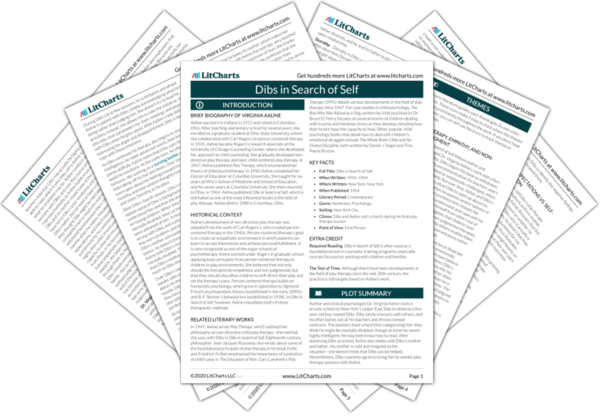Dibs continues to make leaps and bounds in his confidence. The fact that he asks for help even when he doesn’t need it is notable. It implies that Dibs trusts Axline—Dibs knows that she will help him if he needs or wants her assistance. Just knowing that Axline can provide Dibs with help, and will do so in a non-judgmental way, then paradoxically gives Dibs the security he needs to be able to do things on his own. Not only does Dibs set up the farmhouse, but he also leaves completely by himself and without prompting, again reinforcing how Axline’s parameters provide Dibs with security even if he doesn’t necessarily like going home.
